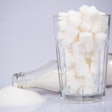Consuming dietary advanced glycation end products (AGEs), found in foods high in sugar, fat, and protein, may be linked to a higher risk of developing periodontitis, according to a study recently published in the International Dental Journal.
The findings emphasize the need for clinical education and healthy food choices to support oral health, the authors wrote.
"An association between advanced glycation end products in the diet and periodontitis implies the importance of the quality of food intake for good oral health," wrote the authors, led by Yuehan Zhang of Guizhou Medical University in China (Int Dent J, December 12, 2024).
Dietary advanced glycation end products (dAGEs) significantly contribute to the body's AGE levels and are linked to various diseases, including diabetes, cardiovascular issues, and periodontitis. While evidence suggests dAGEs exacerbate periodontal inflammation, population studies are needed to clarify their relationship with periodontitis, they wrote.
The study investigated the link between a high dietary intake of AGEs and periodontitis using data from 2,334 adults in the 2003-2004 U.S. National Health and Nutrition Examination Survey (NHANES). Periodontal data was sourced from NHANES, while dietary patterns were evaluated using a 139-item Food Frequency Questionnaire and an AGEs database. Binary regression analysis and adjusted models were used to assess the association.
Participants with an AGEs intake above 21.41 U/kcal showed a higher prevalence of periodontitis compared to those with lower intakes.
After full adjustment for associated factors, the odds ratios for periodontitis with higher AGEs intake were 1.229 (95% confidence interval [CI], 1.015-1.488; p = .034), 1.349 (95% CI, 1.157-1.642; p = .003), and 1.331 (95% CI, 1.088-1.630, p = .006), respectively, they wrote.
However, the study had limitations. The cross-sectional design limited its ability to determine causation or the direction of the relationship between dAGEs and periodontitis, they wrote.
"These findings contribute to recognizing the harm of advanced glycation end products in various foods to periodontitis, and guiding clinical oral education," Zhang et al concluded.




















